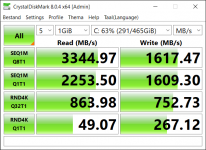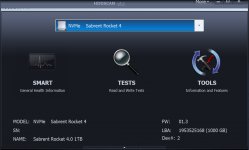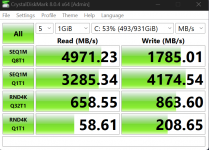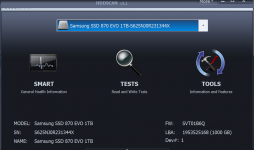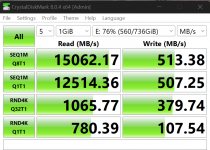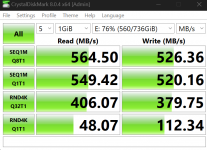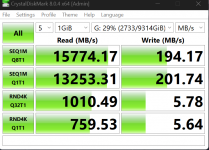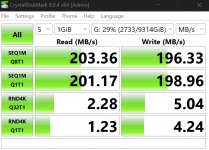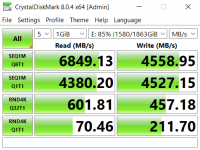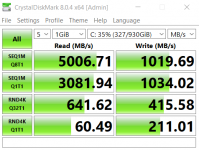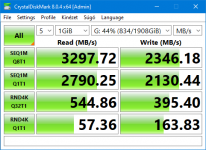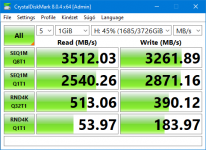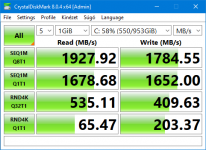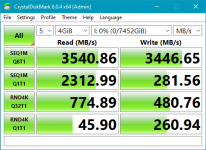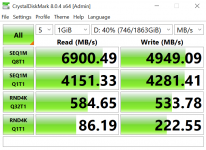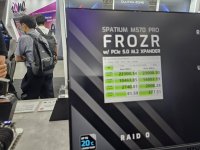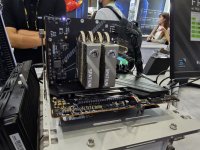My takeaway:
Cache is effective, as long as you are just caring about Read (which, as a typical gamer/consumer, is 90% of what I do), and what you are doing can fit inside the cache. There is an option to enable write caching, but I do not use it as I fear about data loss situations, and I don't do a lot of writes the disk anyway.
The cache effectively makes it so Read is just testing the RAM cache moreso than the drive -- there's probably a way to tweak the test to account for that and run the cache out, but I'm just using out-of-the-box settings on CrystalDisk, and that's why I did the second run with the cache disabled so you can see the drive on it's own. Kind of neat seeing a platter drive come in about the same as a PCI 4 NMVe, but I do realize that it isn't actually hitting the drive, it's just the cache.
In real world use, I can say: if I play a game from the spinner; the first time it will be sluggish. Times after that, much better. Not quite as good as SSD - as the cache isn't 100% effective in all cases, but pretty darn close. I was surprised that it was even effectively caching the PCI 4 drive with some good effect.
Other than that, with the cache disabled the drives should more or less come in similarly to the same drives on other platforms - I don't think there are any surprises.

